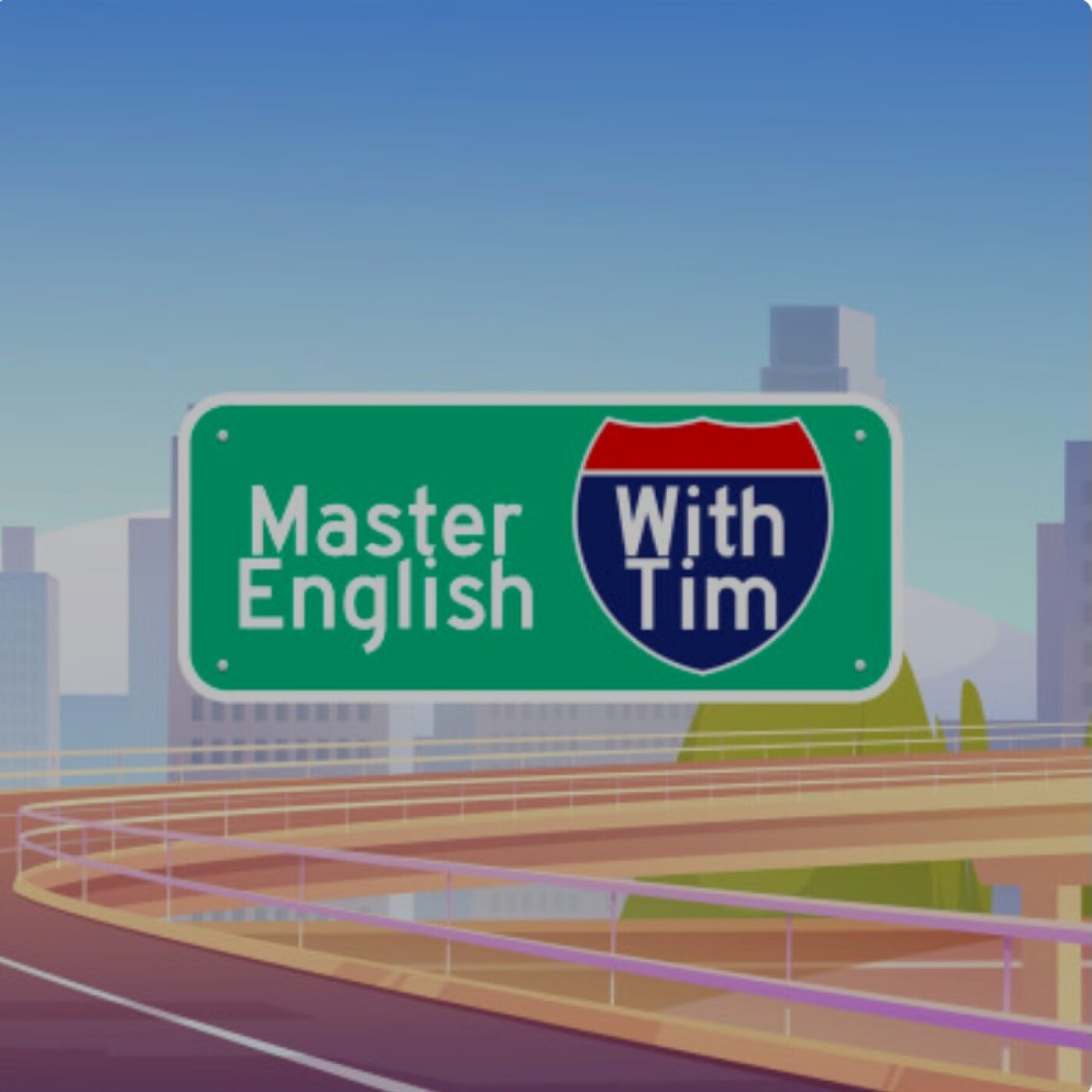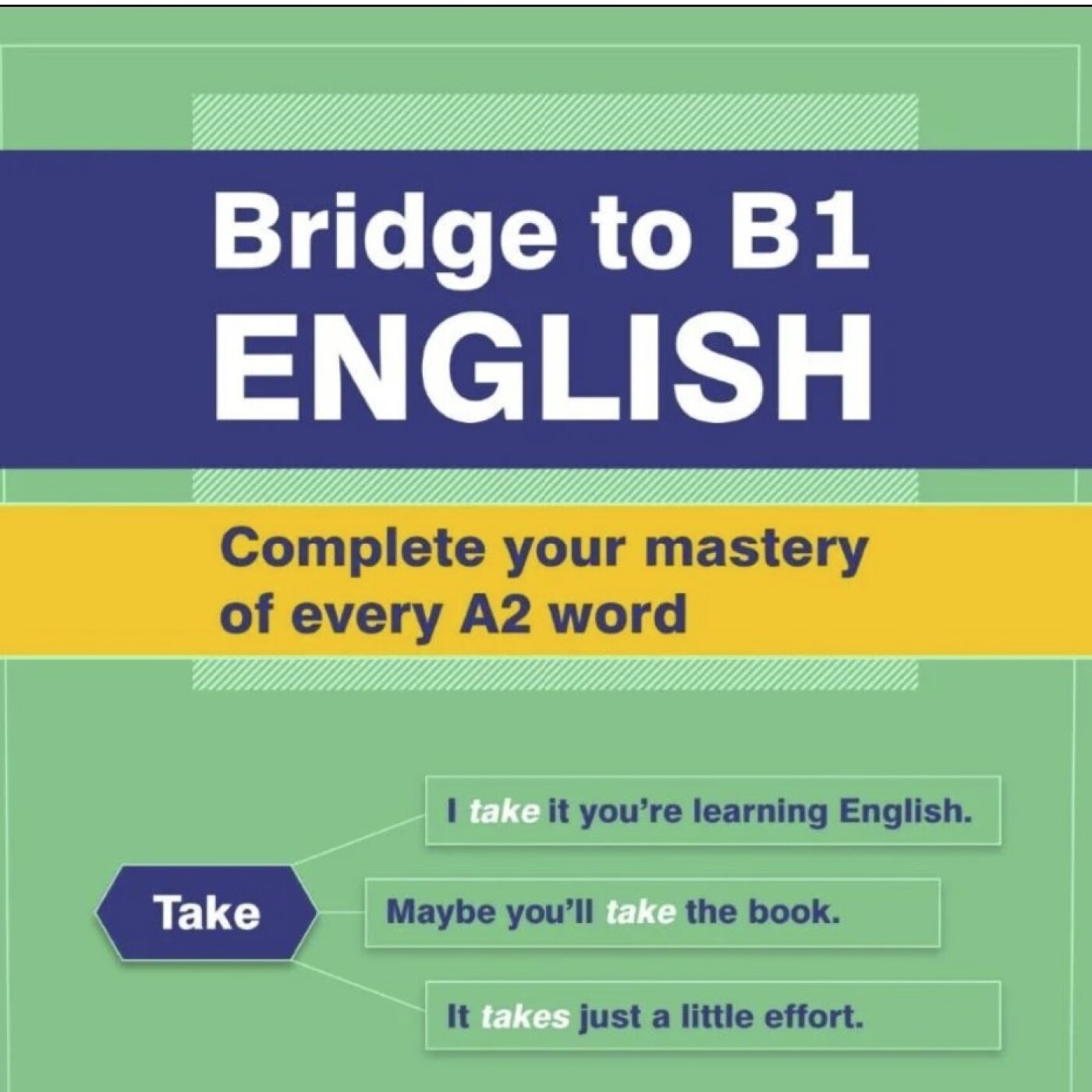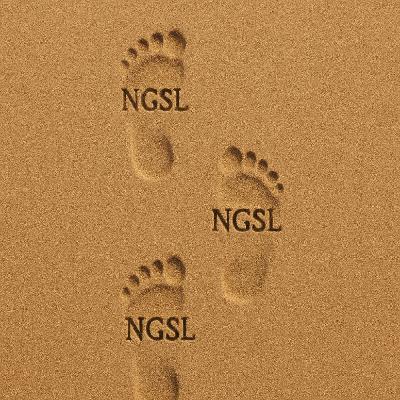Discover Master English With Tim
Master English With Tim

Master English With Tim
Author: Tim Sexton
Subscribed: 76Played: 1,047Subscribe
Share
© Tim Sexton
Description
Wanna master English? Then master the details of English listening, English vocabulary, and English grammar.
-Master English listening: Learn real world pronunciations like "gonna", "hafta" and "didja" instead of the language you hear in the classroom. Understand spoken English more clearly and with greater detail.
-Master English vocabulary: Focus on NGSL vocabulary- the most used words. Each word has different meanings and functions- enjoy exploring them. Learn these words in depth and detail to score higher on TOEFL and IELTS.
-Master English grammar: focus on English verbs, English verb tenses and English parts of speech. Combine hundreds of real examples with the deep patterns behind them to learn English grammar.
Tim has taught English since 2005, and he'll help you move up from intermediate to advanced English.
Hosted on Ausha. See ausha.co/privacy-policy for more information.
145 Episodes
Reverse
Tim isn't just a podcaster- he's also an English teacher, a writing teacher, a writer and even a bike mechanic. Tim works 55 hours a week- and he's tired. Plus, making this podcast costs 160 dollars a year (but earns nothing!). Tim isn't sure if there are any strong reasons for continuing.If you want to write to Tim, you can do so at tim at englishwithtim dot com. If you want this podcast to continue, write to Tim and tell him why. If you want to tell Tim how this podcast has helped you.... write to him and tell him how!Thank you so much everyone for listening!You can find old episodes in the future on YouTube at (Master English With Tim Podcast - YouTube). Hosted on Ausha. See ausha.co/privacy-policy for more information.
In Episode 145, learn about Tim's new resource for strengthening your English vocabulary:Bridge to B1 English. If you'd like a free sample of the book, just write to Tim- tim at english with tim dot com.Hosted on Ausha. See ausha.co/privacy-policy for more information.
"Than" and "then". These are two English words that many students of English- and also native speakers- confuse. Listen to Episode 144 to learn the real world functions and pronunciations of these words so you never confuse them again.Hosted on Ausha. See ausha.co/privacy-policy for more information.
Did you know that the suffix -EN changes some adjectives into verbs? Red -> Redden. White -> Whiten. Black -> Blacken. Dark -> Darken. In Episode #143, Tim explains the basics of the -EN suffix and illustrates its meaning and use with five verbs connected with color and light. Use these verbs to easily brighten how you express yourself in spoken English!Note: cover image generate by AI.Hosted on Ausha. See ausha.co/privacy-policy for more information.
The New General Service List, or NGSL is just 2800 words- but covers 92% of written and spoken English. NGSL vocabulary is also IELTS vocabulary, and TOEFL vocabulary, and vocabulary for doing business and understanding the news. If you want to master English vocabulary, a great first step is to master NGSL vocabulary. Listen to this week's episode to learn 5 words, 15 meanings and 45 examples from the NGSL- words 1876 to 1880.Photo is taken from Wikipedia. It has been cropped to fit a square frame.Link: PIked Tsukahara L9 Reginals - Gymnastics - WikipediaLicense: Deed - Attribution 3.0 Unported - Creative CommonsHosted on Ausha. See ausha.co/privacy-policy for more information.
Talk with Tim, and meet students from around the world- join the Master English With Tim podcast chat groups:https://chat.whatsapp.com/EUTTJKmHcb7A9frLCRAMSa?mode=hqrchttps://t.me/+BBSno0b7GWcxZDFk --We all try not to get sick in the winter- and almost all of us get sick anyways! In this episode, learn the most important English vocabulary for talking about common sicknesses like the cold, the flu and COVID.Hosted on Ausha. See ausha.co/privacy-policy for more information.
Sometimes it's the small words that give us problems- words like BE, AT, and GET. In Episode 140, Tim explains 4 small words: THIS, THAT, THESE and THOSE. Listen to Episode 140 now to learn how to pronounce and use these essential English words.-NOTE: Cover image generated using AI.Hosted on Ausha. See ausha.co/privacy-policy for more information.
If you want to master English vocabulary, you have to master NGSL vocabulary. The NGSL, or New General Service List, is an list of the 2800 most used words in English. Learn these words in depth and detail to get a higher score on IELTS or TOEFL, and to communicate with more confidence at work. Listen to Episode #139 now to learn 17 meanings of 5 NGSL words.NOTE: Cover image created using AI.Hosted on Ausha. See ausha.co/privacy-policy for more information.
There's an easier way to master English vocabulary at the advanced level. This easier method starts with seeing the hidden connections between words. Listen to Episode #138 to learn 18 words and word parts that come from a single root and share a similar meaning. These words will help you on tests like IELTS, TOEFL, SAT, GRE and GMAT.Note: Cover image created by AI.Hosted on Ausha. See ausha.co/privacy-policy for more information.
CAN and CAN'T often sound a lot alike. This can cause real problems in your life! Listen to Episode 137 to learn four functions of CAN, and how to easily understand if you heard CAN or CAN'T. -If you want to learn more about real world, "chewing gum" English pronunciations used by native speakers, listen to Episode 102: A Fresh Look at Chewing Gum.Note: cover image created by AI.Hosted on Ausha. See ausha.co/privacy-policy for more information.
👆Learn root words to make surprising connections between words and remember advanced vocabulary better! Did you know that English contains traces of a prehistoric language first spoken 6000 years ago?Linguists call this language Indo-European because its daughter languages are spoken in Europe (for example, Spanish, German and Ukrainian) as well as in South Aisa (for instance Hindi and Bengali). Listen to Episode 136 to explore nine words that all share a piece of ancient Indo-European history: the root BL, found in English words like BLOND and ALBINO, and also in foreign words like Spanish "blanco" and German "bleich".NOTE: Cover image created using AI.Hosted on Ausha. See ausha.co/privacy-policy for more information.
One person's ghost story can seem unreal... But when two people see the same thing, we have little choice but to believe both of them.In this bonus Halloween episode, listen to a true story about two friends and a ghostly white dog from another world. Hosted on Ausha. See ausha.co/privacy-policy for more information.
This week is a special and scary week- it's Halloween! Tim loves Halloween, so this week he brings you a real-life ghost story told by a close friend. This episode has a lot of advanced vocabulary, much of it connected with ghosts. To get the maximum effect from this episode, learn the advanced vocabulary from the list below- and then listen with the lights turned off!1 recollect = remember2 spooky = scary (usually because of ghosts)3, 4 tumultuous, fraught (/frawt/) = chaotic, complicated (relationships)5 peninsula = piece of land with water on three sides (e.g., Florida or Korea)6 desolate = empty and depressing (land, places)7, 8 marsh, swamp = land with lots of water on it9 windswept = affected by heavy wind (land, territory- a windswept beach)10 flanked by = if a road is flanked by trees, there are trees on both sides of the road11 performer = actor or singer12 creep someone out = to make someone afraid13 orchard = land where fruit trees grow, e.g. apple orchard, cherry orchard14 burial grounds = cemetery, graveyard (for Native Americans)15 suffice it to say = it's enough to say16 fraught = complicated, difficult (relationships)17 tangle = chaotic mix of different objects18 garb = clothing19 eyepatch = piece of cloth worn to protect an eye- pirates wear eye patches20 dilapidated = in bad condition, not taken care of (buildings)21 hazy = difficult to see through (for example, some beers are hazy)22 cobwebs = spiderwebs23 barn = building on a farm where animals live or food is kept24 bee = a black and yellow flying insect25 hive of bees = structure built by bees that they live in; hives contain honey26 general store = old-fashioned store that sells food, tools and clothing- common in the US until the 1950s- General store - Wikipedia27 skittering = moving quickly and noisily across a hard surface28 crescendo = climax, most dramatic moment29 vaporize = to disappear30 apparition = a ghost31 taxing = requiring a large effortNote: Episode cover created by AI.Hosted on Ausha. See ausha.co/privacy-policy for more information.
What if you could speak with greater sophistication and detail WITHOUT learning new words? Well, that really is possible! How? You just need to learn more meanings of words you already know. This technique is even more impactful when you choose words from the NGSL, a list of the 2809 most used words of English. Knowing NGSL vocabulary well can also help you score higher on IELTS and TOEFL. Listen to Episode 134 today to learn 5 NGSL words and 9 meanings. Note: cover image created using AI.Hosted on Ausha. See ausha.co/privacy-policy for more information.
In Episode 133, learn how just one small Latin root can help you learn 12 English words with 17 different meanings. Tim does the hard work for you by explaining what this single root means and how it changes form, and by finding the most interesting and useful words that contain it. What is this mystery root? Listen to Episode 133 to find out, and to help *send* your English vocabulary to the next level!Hosted on Ausha. See ausha.co/privacy-policy for more information.
Want to break the B2 barrier? Want to move up to C1 level English vocabulary? Then learn the words of the NGSL, or New General Service List. Knowing NGSL vocabulary. NGSL vocabulary will help you understand advanced, academic, formal and business vocabulary in depth and detail so you can express yourself with accuracy and sophistication.In this week's episode, you'll learn 18 meanings of 10 NGSL words, 1856-1865:BORROW, FUNDAMENTAL, DISH, ABROAD, SOUL, CAPABLE, DEFEAT, PRESIDENTIAL, PERFECTLY, and ENHANCE.More episodes with words from the NGSL:Episode 2: The NGSL- 2800 Words For Better English.Episode 11: NGSL 1331-1340. 10 Words, 27 Meanings.Episode 62: NGSL 1341-1350.Episode 73: NGSL 1511-1520.Episode 84: NGSL 1011-105.Cover photo from Wikipedia, Climbing at Hanging Gardens, Bullock Creek - Rock climbing in New Zealand - Wikipedia.Deed - Attribution-ShareAlike 2.0 Generic - Creative CommonsHosted on Ausha. See ausha.co/privacy-policy for more information.
If you want to master English vocabulary, then you've got to master the most used words in English. That means learning the NGSL, or New General Service List, a list of the 2800 most used words of English. NGSL vocabulary is the vocabulary you need for higher scores on IELTS and TOEFL. Mastering NGSL vocabulary is also an important part of mastering English listening!Listen to Episode #131 to learn 24 meanings of 10 words of NGSL vocabulary.Note: cover image generated by AI.Hosted on Ausha. See ausha.co/privacy-policy for more information.
USED TO and WOULD are essential constructions for talking about repeated actions in the past- and you need to know them if you want to master English grammar at level B1 and higher. Be careful, though- there are important differences between these constructions!Hosted on Ausha. See ausha.co/privacy-policy for more information.
Want to master English grammar? Then master the details!🤔How do you change a verb into a noun? 😕Or a noun into a verb? One unusual way is to change a word's pronunciation ☑️:Verb: perFECT Noun: PERfectVerb: perMIT Noun: PERmitVerb: obJECT Noun: OBjectVerb: reFUSE Noun: REfuseVerb: deSERT Noun: DEsert⚠️Be careful though! ❗Sometimes words' meanings completely change with the pronunciation!Listen to Episode 129 to learn over a dozen verb-noun pairs with changes in meaning.Hosted on Ausha. See ausha.co/privacy-policy for more information.
Have you been stuck at B2 level English for a long time? Do you want to move up to C1? Then you need to master English vocabulary, specifically the words of the NGSL, or New General Service List. The NGSL includes the top 2800 most used words of English.I'm not going to lie- REALLY learning these words is not fast and easy. That's because you MUST know more than one meaning or function for these words. For instance, words 1846 to 1855 have 27 meanings. Listen to Episode 129 to learn these words and the meanings you need for C1 English vocabulary to score higher on IELTS and TOEFL- and for life in general!Hosted on Ausha. See ausha.co/privacy-policy for more information.

























Very good, as always.
perfect
Hi Tim, thank you for your podcast. I have all these seven problems but I understand every your word on podcast, what makes me very proud of me)